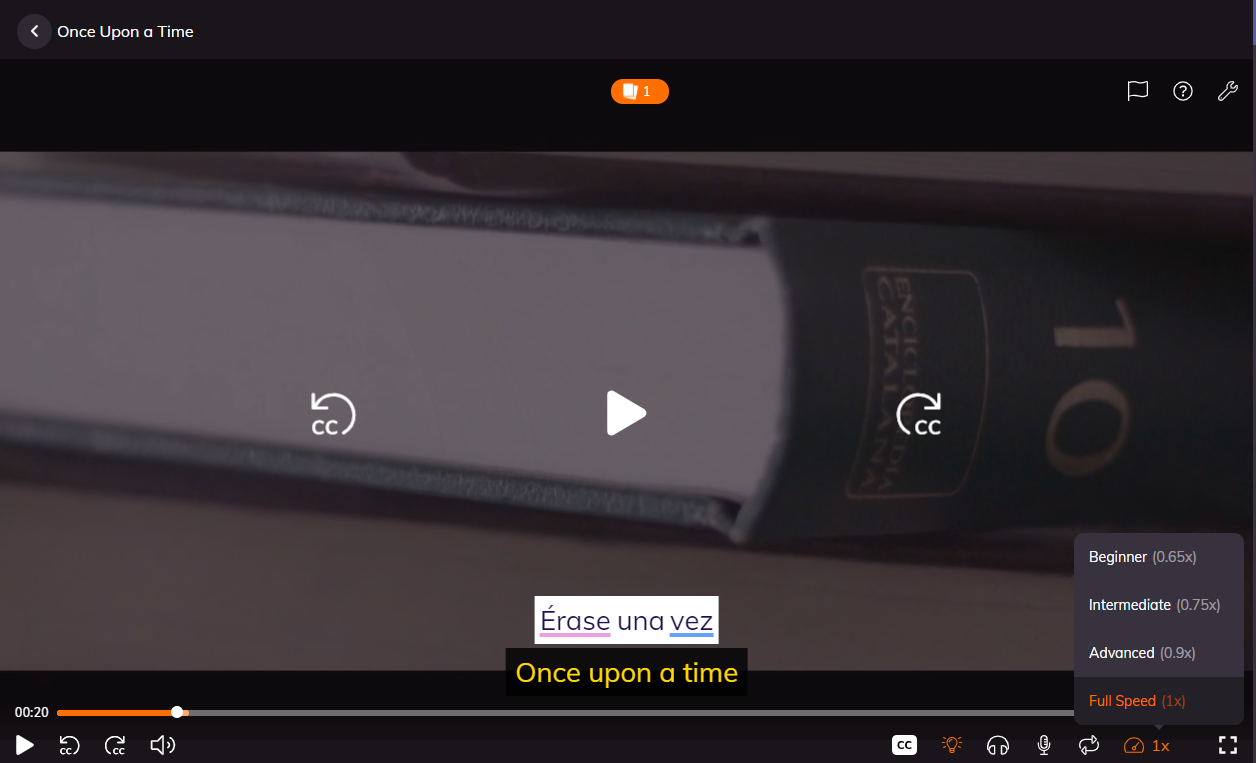Best VPN for Travel in 2025 in my opinion
written by: Krystof-Sandor Harfst
Table of Content
Why You Need a VPN When Traveling Abroad
Traveling to a new country to learn a language is an exciting adventure. But as you explore new cultures, sip coffee in local cafés, and connect with people online, there’s one thing you should never forget: your digital safety.
When you travel, you’re constantly using public Wi-Fi—at airports, hotels, hostels, libraries, and train stations. These open networks are convenient but often not secure, making you vulnerable to hackers, data theft, and even government surveillance in some countries.
That’s where a VPN (Virtual Private Network) comes in. A good VPN protects your internet connection by encrypting your data and hiding your real location. This means you can:
- Safely log in to your bank or email
- Access websites and apps that might be blocked abroad
- Stream your favorite shows from back home
- And most importantly: protect your privacy—wherever you go
As a frequent traveler and language learner, I’ve tested many VPNs over the years. And in 2025, my clear favorite is SafeShellVPN. It’s fast, affordable, and reliable—perfect for both short trips and long-term stays in foreign countries.
In this article, I’ll show you why VPNs are essential for travelers, how SafeShellVPN compares to other popular services, and how to set it up before your next trip.
What Is a VPN – and Why You Should Use One While Traveling
A VPN, or Virtual Private Network, is a tool that keeps your internet connection private and secure. When you use a VPN, all your online activity is encrypted—which means no one (not even hackers, governments, or your internet provider) can see what you’re doing online.
In simple terms:
A VPN creates a
secure tunnel between your device and the internet. It also
hides your real location by letting you connect through servers in other countries.
So, why is that so important for travelers and language learners?
6 Reasons You Need a VPN While Traveling
- Stay safe on public Wi-Fi
Free Wi-Fi in airports, hotels, cafés, and train stations is convenient—but also risky. Anyone connected to the same network can potentially intercept your data. A VPN encrypts your connection, keeping your personal info, logins, and messages safe. - Access websites blocked abroad
Some countries block access to websites like WhatsApp, Google, or news sources. With a VPN, you can connect through a server in your home country and bypass internet censorship. - Search the web in your own language
Without a VPN, you might get local search results that aren’t helpful. For example, if you’re in Japan, Google might show you results in Japanese. A VPN lets you appear as if you're still at home—so you can search and browse comfortably in your own language. - Unlock streaming services
Missing your favorite series while abroad? A VPN lets you watch content on platforms like Netflix, YouTube, and BBC iPlayer—just as if you were back home. - Protect your privacy
When you travel, you don’t always know who’s watching your online activity. A VPN hides your IP address and browsing behavior, so you can explore the internet anonymously. - Secure your banking and emails
Logging into sensitive accounts from another country can trigger security alerts or even lockouts. A VPN helps avoid this by making it look like you're still in your home country.
My Top Pick: SafeShellVPN – The Best VPN for Travelers in 2025
After testing many VPN services over the years, I’ve found that SafeShellVPN consistently offers the best balance of speed, reliability, and ease of use for people who travel abroad—especially those learning a new language and relying on online content.
Here’s why SafeShellVPN is my go-to recommendation in 2025:
Strong Security for Peace of Mind
SafeShellVPN uses industry-standard encryption and a strict no-logs policy. This means your internet activity isn’t tracked, stored, or shared—no matter where you connect from.
Fast, Reliable Servers Around the World
Whether you're studying in Spain, working remotely in Thailand, or just exploring a new city, SafeShellVPN has high-speed servers in over 60 countries. This allows you to stream videos, attend online language lessons, or browse the web without frustrating slowdowns.
Easy to Use on All Devices
You don’t have to be a tech expert to use SafeShellVPN. Its apps are clean, modern, and easy to install on smartphones, laptops, and tablets. With one account, you can connect up to 10 devices—ideal if you're traveling with a phone, laptop, and maybe even a tablet.
Works with Streaming Services
SafeShellVPN gives you access to streaming platforms like Netflix, Amazon Prime Video, Disney+, and more. That means you can watch shows in your target language, continue your series from home, or access learning content that’s region-restricted.
Affordable Pricing Plans
Compared to premium services like ExpressVPN or NordVPN, SafeShellVPN offers highly competitive prices—with the same level of features and support. They also offer a money-back guarantee, so you can try it risk-free.
Easy Setup: Quick Guide
- Sign up at the SafeShellVPN website
- Download the app for your device
- Log in and choose a server (for example, your home country)
- Start browsing securely
Whether you're booking flights, chatting with family, or practicing vocabulary on YouTube, SafeShellVPN makes sure you're protected and unrestricted online.
Other Popular VPNs for Travel – A Fair Comparison
While SafeShellVPN is my personal favorite for travel in 2025, it’s not the only option. Many travelers use VPNs like NordVPN, ExpressVPN, or Surfshark—each with their own pros and cons.
Here’s a quick overview of how SafeShellVPN compares to other well-known services.
NordVPN
Pros:
- Excellent connection speeds
- Over 6,000 servers in 60+ countries
- Advanced security features like Double VPN
Cons:
- More expensive than many other VPNs
- Interface may feel overwhelming for beginners
Great for:
Tech-savvy travelers who want top-tier performance and privacy options.
ExpressVPN
Pros:
- Very fast and stable connections
- Excellent for streaming and bypassing censorship
- Easy to use across all devices
Cons:
- One of the most expensive VPNs on the market
- Limited to 5 simultaneous device connections
Great for:
Short-term travelers who want the fastest and most reliable connections, especially for streaming.
Surfshark
Pros:
- Unlimited number of devices per account
- Great pricing for long-term plans
- Simple, beginner-friendly interface
Cons:
- Slightly lower speeds on some servers
- Fewer advanced features compared to NordVPN
Great for:
Families or travelers with multiple devices who want a budget-friendly option.
CyberGhost
Pros:
- Easy setup for VPN beginners
- Good coverage in Europe and North America
- Specialized servers for streaming and torrenting
Cons:
- Slower speeds in regions like Asia or South America
- Customer support can be hit or miss
Great for:
First-time users looking for a simple and affordable VPN for basic travel needs.
ProtonVPN
Pros:
- Focus on strong privacy and security
- Offers a free version with no data limits
- Developed by the team behind ProtonMail
Cons:
- Fewer servers and countries compared to others
- Free version has limited speed and fewer features
Great for:
Privacy-conscious users who don’t mind a slower connection or want to try a free VPN before upgrading.
Why I Still Choose SafeShellVPN
All of these VPNs have something to offer. But for travelers who want a secure, fast, and easy-to-use service that works across multiple devices and countries, SafeShellVPN consistently delivers—without the high price tag or technical complexity.
VPN Comparison Table for Travelers
You’ll find many VPN providers claiming to be “the best,” but not all of them are optimized for international travel and language learners. Here’s a side-by-side comparison of the most popular VPNs, with a focus on the features that matter most when you're abroad.
Dies ist Absatztext. Klicken Sie darauf oder klicken Sie auf die Button Text verwalten, um Schriftart, Farbe, Größe, Format und mehr zu ändern. Um Website-weite Absatz- und Titelstile einzurichten, gehen Sie zu Website-Design.
| VPN Provider | Speed | Streaming Access | Privacy Policy | Pricing | Device Limit | Best For |
|---|---|---|---|---|---|---|
| SafeShellVPN | Very Fast | All major platforms | No-logs, strong encryption | $$ | 10 devices | Best overall for travel |
| NordVPN | Very Fast | Netflix, Hulu, more | No-logs, extra privacy tools | $$$ | 6 devices | Power users |
| ExpressVPN | Extremely Fast | Netflix, Prime, more | No-logs | $$$$ | 5 devices | High-speed streaming |
| Surfshark | Good | Most platforms | No-logs | $ | Unlimited | Multiple devices |
| CyberGhost | Average | Netflix, BBC, more | No-logs | $ | 7 devices | Beginners |
| ProtonVPN | Moderate | Limited free access | Privacy-first (Swiss-based) | Free / $$ | Up to 10 | Privacy seekers |
How to Use a VPN While Traveling
Getting the most out of your VPN while traveling isn’t just about installing the app and clicking "connect." To really stay secure and unlock the full benefits of a VPN abroad, you’ll want to follow a few best practices — both before you leave and while you're on the move.
Before You Travel
1. Choose and install your VPN provider
I recommend SafeShellVPN, especially if you're new to VPNs or traveling long-term. Sign up for a plan, download the app for your devices (phone, laptop, tablet), and get familiar with the interface before you go.
2. Test your VPN at home
Before departure, connect to a few different countries using the VPN and check your internet speed, video playback, and login access to your bank, streaming platforms, or email accounts. This helps avoid surprises later.
3. Save your most-used servers
Most VPNs let you "favorite" or bookmark server locations. For example, if you want to keep accessing Netflix Germany while studying Spanish in Argentina, save the German server for easy access.
4. Enable essential features
Activate features like
auto-connect (VPN turns on automatically when Wi-Fi is detected) and the
kill switch (blocks internet access if the VPN disconnects) to make sure you're always protected.
While You Travel
1. Use the VPN on all public Wi-Fi networks
Always connect to the VPN before logging in to hotel, airport, or coffee shop Wi-Fi. These are high-risk environments for personal data theft.
2. Change server locations as needed
Some websites or streaming services may work better through specific countries. If a platform seems blocked, simply switch to another server. SafeShellVPN makes this easy with a one-click server change.
3. Keep the VPN running in the background
For language learners using tools like YouTube, Duolingo, or language exchange apps, a VPN helps avoid region-based restrictions — so you’re always able to access content in your target language.
4. Combine your VPN with an eSIM
If you're using a travel eSIM for mobile data, pairing it with a VPN gives you maximum control over your internet identity and access, regardless of your location.
Frequently Asked Questions (FAQ) – VPNs for Travel
What’s the best VPN for travel in 2025?
Based on ease of use, speed, and reliability,
SafeShellVPN is my top recommendation. It balances performance and privacy while remaining affordable — ideal for both short trips and long-term travel.
Is it legal to use a VPN abroad?
Yes, in most countries, VPNs are completely legal to use. However, some countries (like China, Russia, and Iran) restrict or ban VPN use. Always check local laws before you travel. That said, SafeShellVPN is designed to work even in regions with heavy censorship.
Can I use a free VPN for traveling?
You can — but it’s risky. Free VPNs often have slower speeds, data limits, fewer server locations, and questionable privacy policies. If you're dealing with personal accounts, banking, or streaming, a trusted paid service like SafeShellVPN is the safer option.
Will a VPN let me watch Netflix or YouTube from my home country?
Yes. A good VPN can help you bypass region restrictions and access streaming content just like you were at home. SafeShellVPN is compatible with Netflix, Amazon Prime, Disney+, YouTube, and more.
Can I use a VPN to access blocked websites?
Absolutely. If you’re in a country where websites like Google, WhatsApp, or news platforms are blocked, a VPN allows you to access them safely by routing your connection through another country.
Will a VPN slow down my internet while I travel?
It depends on the VPN. Some reduce speed significantly — especially free ones. SafeShellVPN is optimized for fast connections, even on hotel or café Wi-Fi. In my experience, speed differences are minimal for most activities.
How many devices can I use with SafeShellVPN?
SafeShellVPN allows up to
10 simultaneous connections, so you can protect your phone, laptop, tablet, and even share access with a travel partner — all under one account.
Do I really need a VPN just to browse the internet?
If you’re only using secure websites at home, maybe not. But when traveling, your connection is often public and less protected. A VPN gives you privacy, security, and freedom — especially when accessing sensitive accounts or learning resources online.
Share this article!






